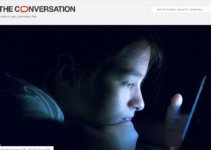Title: The Link Between Sleep, Physical Activity, and Cognitive Health Explored in Recent Studies
Introduction:
Recent studies have shed light on the complex relationship between sleep, physical activity, and cognitive health. Traditionally, research in this area has focused on isolated snapshots in time, failing to capture the long-term effects of sleep deprivation on cognitive function. Surprisingly, these studies have revealed that regular physical activity may not always be sufficient to counteract the detrimental impacts of sleep loss on cognitive health. Moreover, the findings underscore the importance of positive coping strategies and sleep quality in managing chronic stress. Additionally, researchers have explored the potential impact of climate change on sleep quality, especially among older adults, and the potential interventions to optimize their sleep environment. Lastly, investigations into sleep apnea have revealed its association with cardiovascular risks and the need for personalized treatment approaches.
The Impact of Sleep and Physical Activity on Cognitive Health:
Previous studies have primarily examined the association between sleep, physical activity, and cognitive function using cross-sectional data. However, these studies failed to analyze the long-term effects of sleep deprivation on cognitive health. Surprisingly, regular physical activity may not always be enough to counteract the negative impact of sleep loss on cognitive function. Researchers have found that short sleep duration can diminish the cognitive benefits of physical activity. On the other hand, high-quality sleep and positive coping strategies can help prevent poor mental health outcomes during periods of chronic stress. These findings emphasize the need to target both sleep quality and positive coping strategies to maintain cognitive health.
The Role of Sleep Quality in Mental Health Resilience:
Quality sleep has been found to bolster resilience to mental health disorders such as depression and anxiety. Research has demonstrated that individuals who engage in higher levels of physical activity and sleep between six and eight hours per night have better cognitive function as they age. Moreover, the management of chronic stress heavily relies on quality sleep, which can reduce symptoms of depression and anxiety over an extended period of time. These findings highlight the importance of prioritizing sleep quality to ensure overall mental well-being.[0]
Climate Change and Sleep Quality in Older Adults:
Researchers have also explored the potential impact of climate change on sleep quality, particularly among older adults with lower socioeconomic status. Night-time ambient temperature plays a pivotal role in sleep quality for older people, and as night-time temperatures increase in cities, the adaptive capacity of older adults with lower socioeconomic status needs to be increased. Interventions aimed at optimizing the sleep environment and personalized temperature adjustments based on individual needs and circumstances may help enhance sleep quality in older adults.
Sleep Apnea and Cardiovascular Risks:
Sleep apnea has long been associated with increased cardiovascular risks. Recent research has revealed that reduced blood oxygen levels caused by sleep apnea contribute to these risks. The findings suggest that treating sleep apnea could potentially prevent future cardiovascular outcomes. Understanding the mechanisms underlying sleep apnea could lead to improved clinical trial designs and better measurements in clinical practice.
Conclusion:
The recent studies have provided valuable insights into the intricate relationship between sleep, physical activity, and cognitive health. The findings emphasize the need to prioritize both sleep quality and positive coping strategies to maintain cognitive function and mental well-being. Additionally, researchers have highlighted the potential impacts of climate change on sleep quality for older adults and the importance of personalized interventions. Further research in these areas will contribute to our understanding of sleep and its impact on various aspects of health.
0. “Got the blues? Study says you should get a good night's sleep …” www.news-daily.com, 4 Sep. 2023, https://www.news-daily.com/local/health/got-the-blues-study-says-you-should-get-a-good-night-s-sleep/article_61ff2cdb-3733-534d-a398-a5c8dce362e0.html





